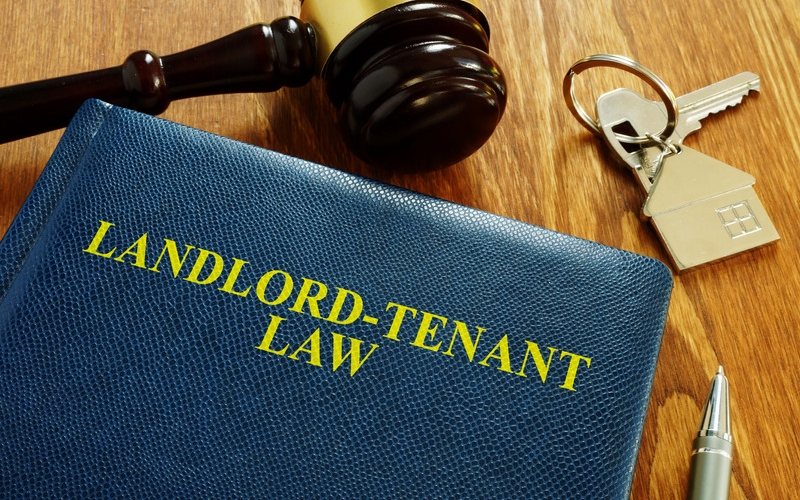Last Updated on March 18, 2024 by Kelvin Nielsen
As a Colorado renter, you enjoy many rights under state law (CO Statutes Title 38 Article 12). And this means that there are many things a landlord cannot do in Colorado.
Among other things, a landlord cannot evict you illegally, raise rent without property notice, refuse to return your security deposit, or provide you an uninhabitable rental unit, among other things.
Knowing what a landlord can and cannot do will help you safeguard your rights and ensure you live in your rented premises in peace and quiet.
The following is a guide on things that landlords cannot do to tenants in Colorado.
What a Landlord Cannot Do in Colorado?
#1: A landlord cannot legally rent out an uninhabitable property.
As a renter, you have a legal right to live in a habitable property. That is, one that meets the state’s basic health, safety, and building codes. Among other things, it must meet the state’s heating requirements, have hot running water, adequate trash containers, and working smoke and carbon monoxide detectors.
They must also take care of repairs impacting the unit’s habitability within 24-96 hours.
If the landlord fails in these responsibilities, you may be able to exercise certain legal options. Including, suing them for any resulting damages, breaking the lease without penalty, or “Repair and Deduct.”
#2: A landlord cannot illegally evict a tenant.
Under Colorado laws, landlords have an obligation to follow the state’s eviction process when removing a tenant. For one, the landlord must have a “just cause” to carry out an eviction. Examples of “just causes” include failure to pay rent, lease violation, having no lease, or engaging in illegal activity.
Next, the landlord must serve you a proper eviction notice. For instance, if you live in federal subsidized housing and fail to pay rent, the landlord must serve you a 30-Day Demand for Rent or Possession.
If the matter remains unresolved, the landlord can file a lawsuit against you and a hearing will be held. You will have an opportunity to answer the landlord’s allegations, and the court will eventually give a ruling.
The landlord must not try to evict you in any other way. They must not try to use “self-help” means, or engage in a retaliatory, or discriminatory eviction practices.
#3: A landlord cannot retaliate against you for exercising a legal right.
It’s illegal for landlords in Colorado to retaliate against their tenants for exercising their rights. As a renter, you have a right to report the landlord to a local health department, and form or join a tenants’ union to advocate for your rights.
And after exercising those rights, your landlord cannot retaliate against you by raising rent, threatening to evict you, discriminating against you, or intimidating you. These are all illegal retaliatory tactics in Colorado.
The penalties for landlord retaliation can be severe to a landlord’s bottom line. You may be able to end the lease without penalty or sue them for 3X the damages incurred.
#4: A landlord cannot wrongfully withhold your security deposit.
As a renter, you have a right to get the remaining portion of your security deposit back after moving out. The landlord must send it to you within one month (or within 60 days if the lease specifies a longer period) after moving out.
And if there are any deductions to be made, the landlord must provide you with an itemized statement along with the remaining portion of the security deposit. And speaking of deductions, Colorado landlords may only make deductions for things like:
- Unpaid rent and utility bills
- Damage exceeding normal wear and tear
- Unpaid repair bills
- Abandonment of the premises
You can learn more about what a landlord cannot do in Colorado when it comes to security deposits here.
#5: A landlord in Colorado cannot terminate your lease illegally.
In a periodic lease, the landlord must serve you a proper notice before terminating your lease. The amount of notice to serve will depend on the length of time you have lived on the property.
| Length of Tenancy | Notice Requirement |
| If the tenancy is less than 1 week | 1 Day |
| If the tenancy is between 1 week and 1 month | 3 Days |
| If the tenancy is between 1 month and 6 months | 7 Days |
| If the tenancy is between 6 months and 12 months | 28 Days |
| If the tenancy is a year or more | 91 days |
In a fixed-term lease, the landlord must have a “just cause” to evict you from the property. As already mentioned, “just causes” for eviction in Colorado include failure to pay rent, lease violation, and illegal activity.
#6: A landlord in Colorado cannot raise rent illegally.
Although Colorado doesn’t have rent control laws, there are certain actions that a landlord cannot take when it comes to rent-related matters.
For one, a landlord cannot raise rent during a fixed-term lease. This would be going against the terms of the lease agreement. The only exception is if the lease allows for such an increase.
Two, a landlord cannot increase rent out of discrimination. In other words, the rent raise must not be borne out of a tenant’s race, color, nationality, religion, familial status, or any other protected characteristic under federal and state fair housing laws.
Three, the rent raise must not be a retaliatory tactic. The landlord must not be trying to get back at you for reporting them to a local government agency due to uninhabitability issues, or for joining or forming a tenants’ union to advocate for your rights.
In addition, a landlord in Colorado cannot raise rent without an advance written notice. This is especially true if there is no written agreement between you. In which case, they must serve you a 60 days’ advance written notice. There are no statutory requirements in other situations.
#7: A landlord cannot discriminate against you.
It’s illegal for landlords in Colorado to discriminate against their tenants based on a protected class. Protected classes exist at both the federal and state levels.
At the federal level, protected classes are race, color, nationality, religion, sex, familial status, and disability. Additional protections at the state level include sexual orientation, ancestry, marital status, gender identity, and ownership of a service animal.
The following are some examples of discriminatory practices the landlord must not engage in based on Colorado Fair Housing Laws.
- The landlord cannot refuse to rent to you because you’re either single, expectant, or have children.
- The landlord cannot refuse to rent to you because of your race.
- The landlord cannot put up a “For Rent” ad that says things like: “Ideal for Single Professionals”, “Ideal for Female Renters”, “No Pets Allowed”, “Christians Only” or “Perfect for a Small Family.”
#8: A landlord cannot enter for just any reason.
As a renter, you have a right to enjoy your rented premises in peace and quiet. Among other things, this means that the landlord cannot enter your rented premises at any time and for any reason.
The entry must be for purposes reasonably related to the rental agreement. Such as, to make repairs or perform maintenance, to show the property to prospective tenants, under a court order, or in response to an emergency.
That said, unlike in some other states, Colorado landlords don’t have any obligation to provide any advance notice. Only one exception exists. Under Colorado state law (CRS § 38-12-1004), landlords must provide a 48-hour advance notice before entering to inspect or treat a bed bug infestation.
#9: A landlord cannot charge illegal late fees.
Your landlord cannot charge a late fee exceeding 50% or 5% of the past-due rent payment, whichever is greater. In addition to this, the landlord cannot charge interest on late fees, charge late fees on rent that is government-subsidized, or subtract a late fee from a tenant’s rent payment.
Your landlord cannot also try to evict you from your rented premises solely because you haven’t paid late fees.
Frequently Asked Questions (FAQs): What a Landlord Cannot Do In Colorado?
Q: What is landlord harassment in Colorado?
A: Landlord harassment is any action a landlord takes to bully, coerce, or intimidate a tenant. These actions are all illegal under Colorado law.
Specific examples of landlord harassment include entering a tenant’s unit illegally, refusing to make requested repairs, using illegal eviction methods, and verbal or physical abuse.
If you have reasons to believe your landlord is harassing you, the following are some things you can do. Talk to the landlord to try to resolve the matter amicably. Keep a record of all incidents. File a complaint with the state’s Department of Regulatory Agencies, Division of Real Estate. You may also file a lawsuit against the landlord for emotional distress or damage.
Q: Can a landlord evict you immediately in Colorado?
A: No! Under no situation can a landlord evict you immediately in Colorado. Even for serious violations like failing to pay rent, causing damage exceeding normal wear and tear, or even engaging in illegal acts, the landlord must first provide you with an eviction notice.
And if you don’t move out or rectify the violation (for curable violations) within the notice period, the landlord can only go to court to file an eviction lawsuit. They cannot try to evict you by shutting down utilities, changing the locks, or removing your personal belongings. These are examples of “self-help” eviction methods and are illegal as per Colorado law.
Q: How much notice does a landlord have to give a tenant to move out in Colorado?
A: In a periodic lease agreement, this will depend on the length of time you have been living on the property.
The following is a tabulated summary of the notice requirements landlords must abide by when terminating periodic lease agreements in Colorado.
| Length of Tenancy | Notice Requirement |
| If the tenancy is less than 1 week | 1 Day |
| If the tenancy is between 1 week and 1 month | 3 Days |
| If the tenancy is between 1 month and 6 months | 7 Days |
| If the tenancy is between 6 months and 12 months | 28 Days |
| If the tenancy is a year or more | 91 days |
However, in a fixed-term lease, the amount of notice the landlord will need to give you to move out in Colorado will depend on the lease violation committed. For example, to evict you for failing to pay rent, the landlord will need to serve you a 5-Day Notice to Pay. If you pay within the 5 days, great! However, if you choose not to, the landlord will need to file an eviction lawsuit in court to get you to move out.
Q: How do I file a complaint against a landlord in Colorado?
A: First and foremost, gather as much information about the landlord as possible. Include the lease agreement, any written communication you have had with the landlord, and any documentation of the issue.
Next, file a complaint with the Colorado Attorney General’s Office. Alternatively, you can also call the office by dialing 1-800-222-4444.
If the complaint is about landlord discrimination, you can take up the matter with the Colorado Civil Rights Division (CCRD). You can file the complaint either online or by dialing 303-866-2230.
You may also consider hiring an attorney. A good attorney will help you understand your rights and the legal options you can take. They can also represent you in court if that becomes necessary.
Q: How often can a landlord raise rent in Colorado?
A: In Colorado, a landlord cannot raise rent more than once in a year, regardless of whether there is a written lease agreement or not. However, some exceptions do exist. That is, if the tenant agrees to the increase in writing or the landlord makes significant improvements to the rental property.
Colorado landlords must give tenants 60 days or more prior to raising rent. The increase must also not be borne out of discrimination or be a retaliatory tactic.
Q: What is an illegal eviction in Colorado?
A: Illegal evictions occur when a landlord fails to follow the proper eviction process when removing a tenant from their rented premises. Regardless of the violation a tenant has committed, a landlord cannot partake in illegal eviction practices. Such as, changing locks, cutting off utilities, evicting a tenant because of a protected class like race or color, or evicting a tenant for retaliatory reasons.
Conclusion
There you have it. All the things a landlord cannot do in Colorado. That’s why it’s important to familiarize yourself with your rights after becoming a renter in Colorado. This way, you’ll protect yourself against potential abuse and ensure you’re treated fairly and respectfully by your landlord.
Here is a comprehensive guide on what rights renters have under Colorado law.
Disclosure: The content herein isn’t a substitute for advice from a professional attorney. It’s only meant to serve educational purposes. If you have a specific question, kindly seek expert attorney services.
Disclaimer: Colorado Statutes Title 38 Article 12, Colorado Landlord Responsibilities for Habitability, Colorado Security Deposit Rules, CO Department of Local Affairs,

Hi, I’m Kelvin Nielsen, an experienced landlord and accomplished real estate lawyer. My focus is on answering your questions about renting in the hopes of making your life as a renter or a landlord a bit easier.







